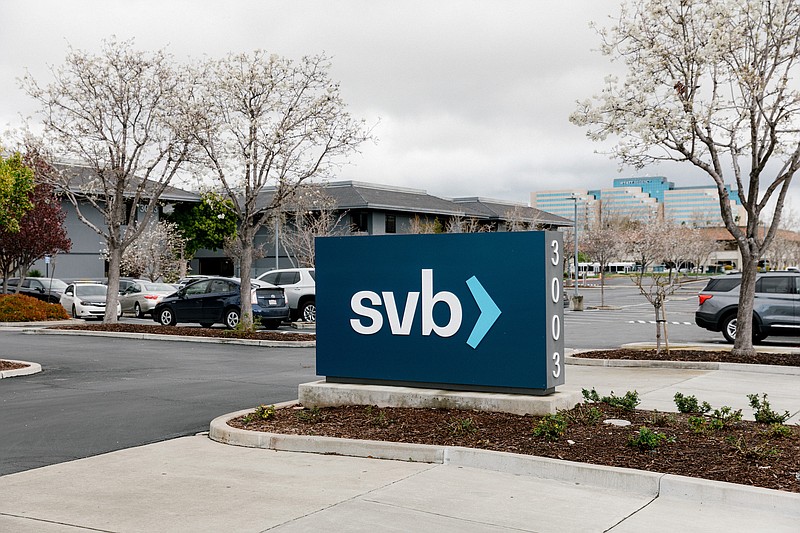In the brief but spectacular collapse of Silicon Valley Bank, we may just have witnessed the best banking crisis ever.
It might even have been useful.
Nobody got seriously hurt, except bank executives who made bad decisions and shareholders who weren't paying attention.
Those Silicon Valley libertarians who spent years demanding that government get out of the way earned their comeuppance when they begged the Federal Reserve to save them. "Where is (Federal Reserve Chair Jerome H.) Powell? Where is (Treasury Secretary Janet L.) Yellen? Stop this crisis NOW," tweeted David Sacks, the tech investor who was a fan of creative destruction until it got too near his bank account.
Just as there are no atheists in foxholes, there are no libertarians in financial panics.
Republican politicians provided a dose of comedy, blaming SVB's financial blunders on the imaginary menace of "woke banking." There's no evidence that the bankers' political leanings, "woke" or otherwise, affected their balance sheet.
The rest of us got a useful reminder of why free-market capitalism needs to be regulated: to protect the little guy (and sometimes not-so-little guys) from catastrophe.
Most important, the Fed and the Federal Deposit Insurance Corp. (FDIC) got a wake-up call that their oversight of middle-size banks has been dangerously lax.
The collapse of SVB, frightening though it was, could be a useful corrective to excessive bank deregulation, like a brief health crisis that prompts people to exercise more and eat better.
SVB's vulnerability shouldn't have been a surprise. The bank reported its problems in public financial statements last fall. The Wall Street Journal published an article on the asset squeeze in November, almost four months before the tech bros panicked.
The mystery is why neither SVB Chief Executive Greg Becker nor the federal and state authorities assigned to regulate the bank acted to prevent the crisis.
The decision to cover uninsured deposits over $250,000 prompted hand-wringing about "moral hazard." In theory, capitalism regulates itself when risky behavior -- putting too much money in one bank, for example -- gets punished. If the government rescues people who make bad bets, they have no incentive to avoid undue risk.
But the SVB bailout wasn't unprecedented. The FDIC and the Fed have quietly bailed out most uninsured depositors since 2008.
Becker will get a chance to explain himself at congressional hearings, the Capitol Hill version of the Walk of Shame on "Game of Thrones." He'll presumably be asked whether he was really too woke to notice that his long-term bonds were losing value.
The regulators will be called to account as well, not only by longtime critics like Sen. Elizabeth Warren, D-Massachusetts. Last week a dozen senators including Kyrsten Sinema, I-Arizona, and J.D. Vance, R-Ohio, asked the Fed why it failed to investigate SVB.
There's already a list of possible fixes. Congress could reimpose so-called stress tests on middle-size banks, a rule it eliminated in 2018. The Fed could reimpose liquidity requirements for those banks, a rule Powell relaxed in 2019. The FDIC could raise the ceiling on deposit insurance above $250,000 and bill banks for the cost.
The test will come six months from now: Is the Fed doing more? Are banks? And are voters still paying attention?
The banking system's jitters aren't over. The government is still trying to sell what remains of SVB. San Francisco-based First Republic Bank is still looking shaky, even after a $30 billion injection of deposits.
But at least for a moment, the rest of us can breathe a sigh of relief. If all financial crises could be resolved as quickly as this one, capitalism would be a little less scary.
The Los Angeles Times
